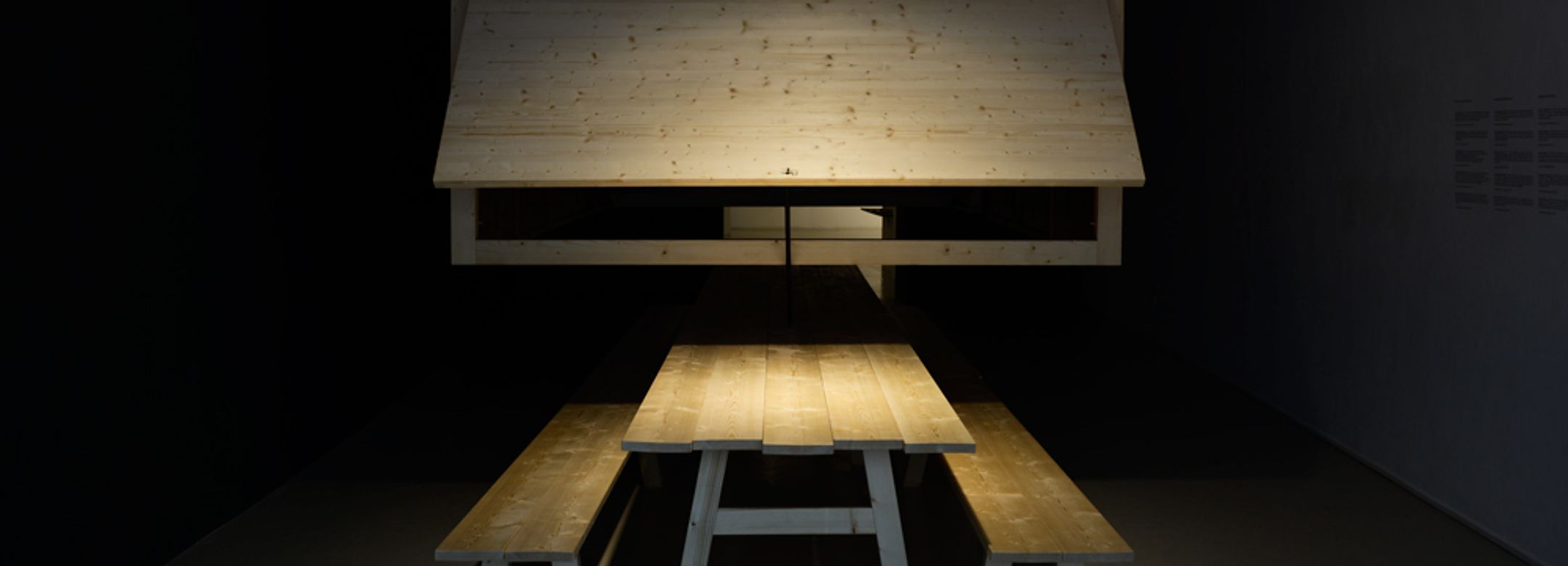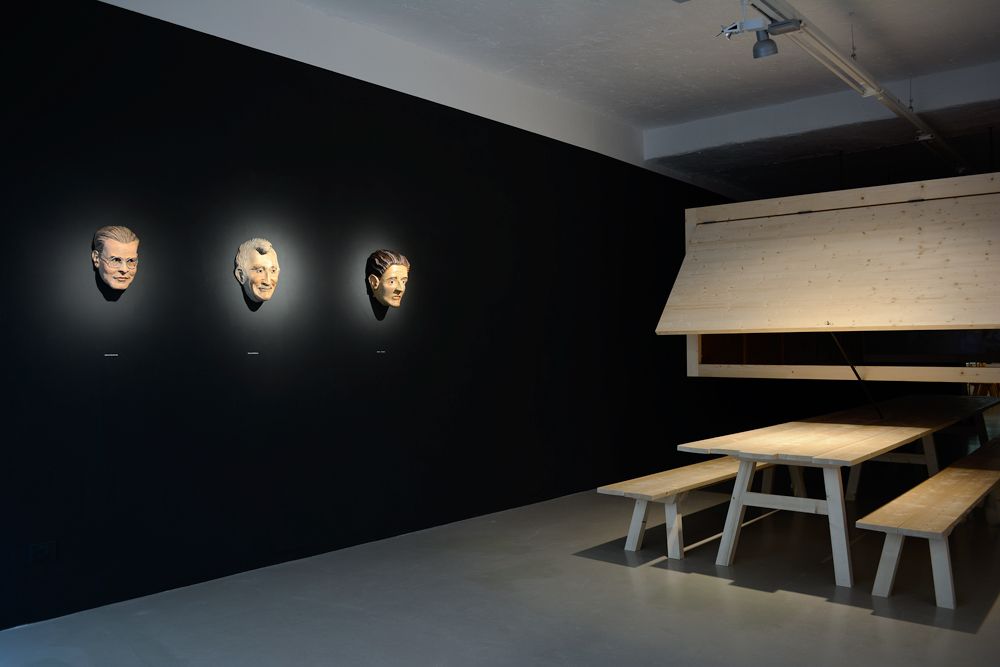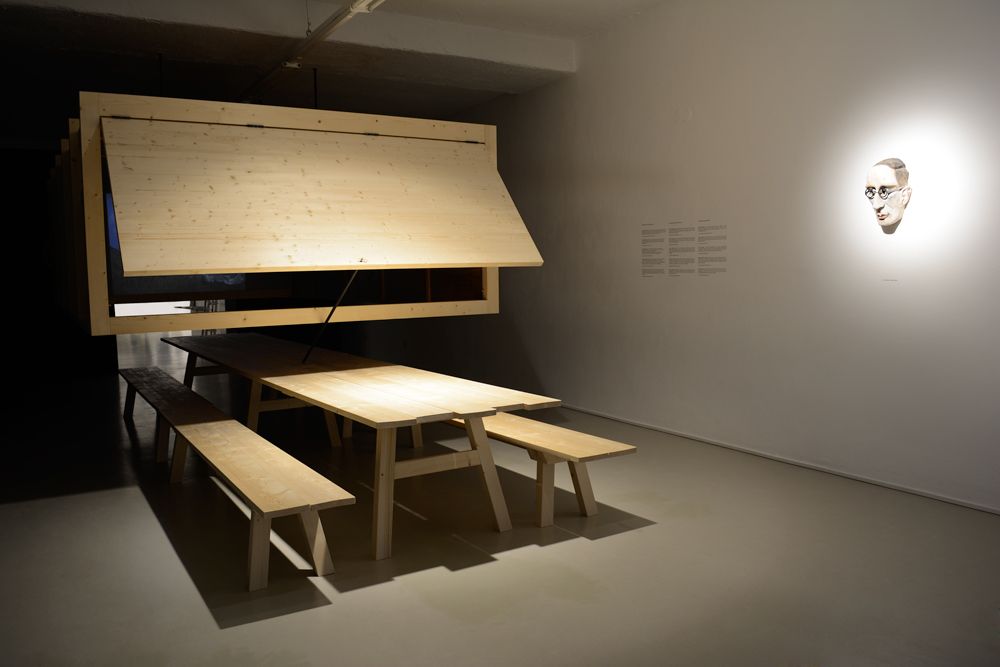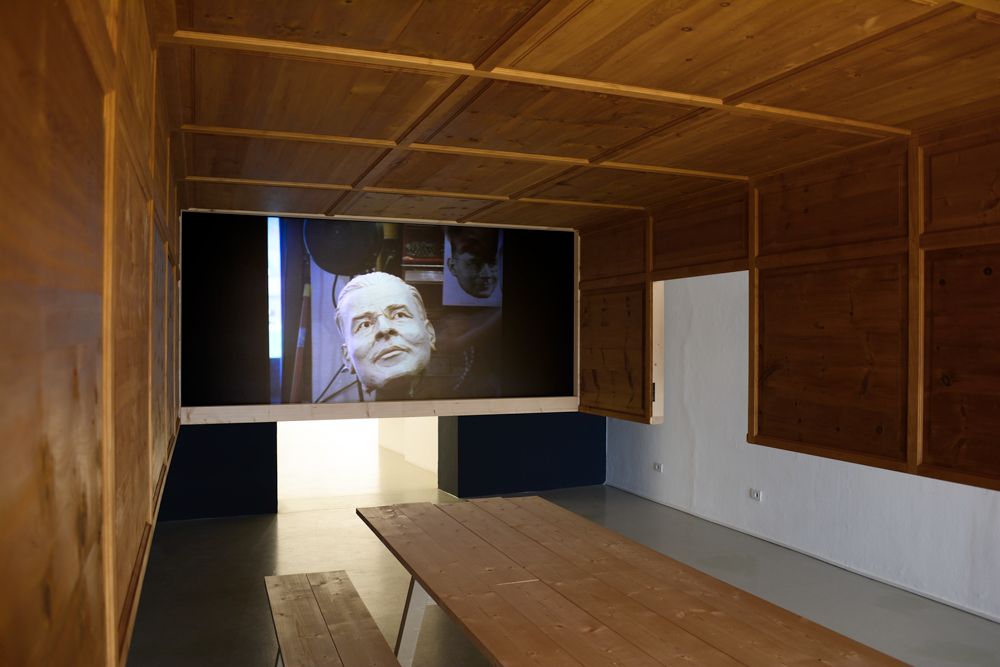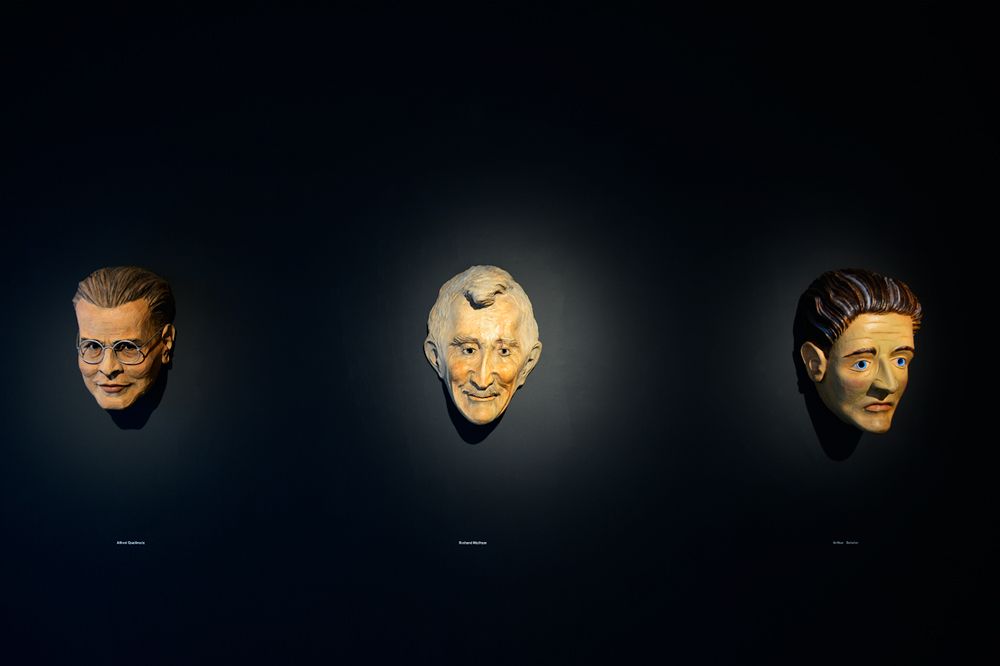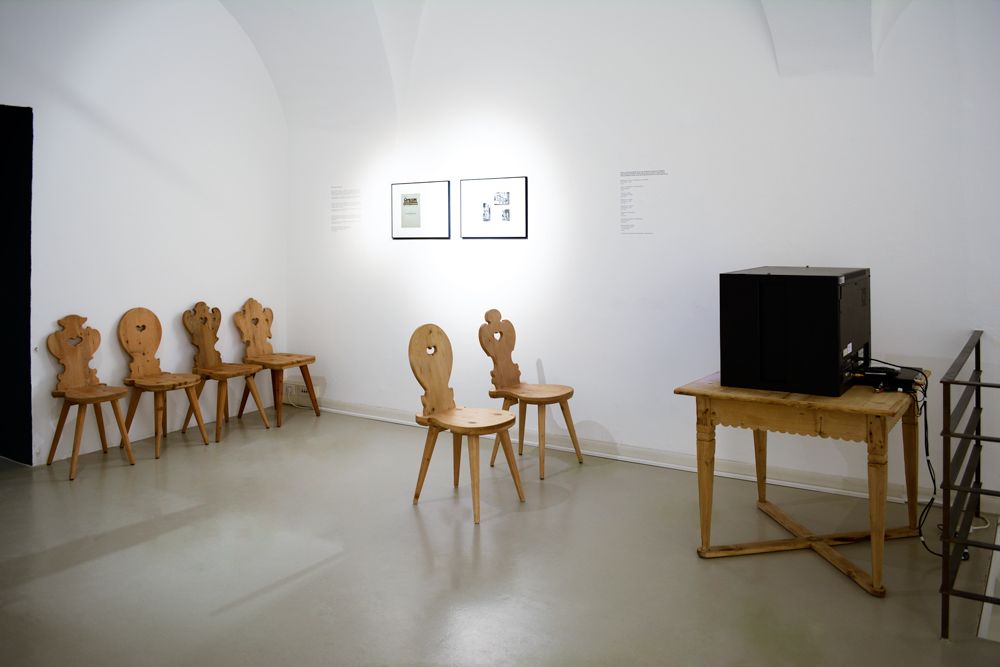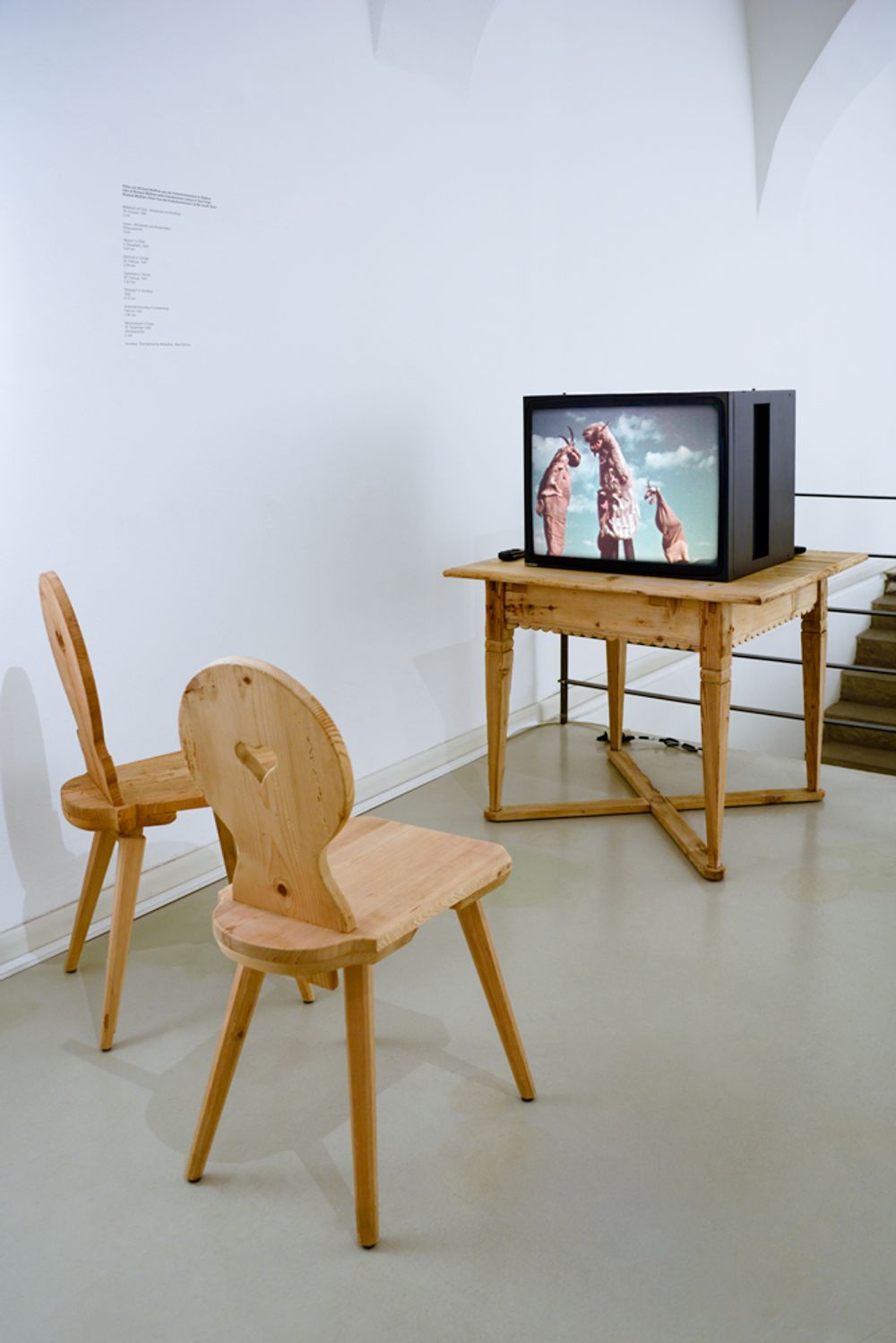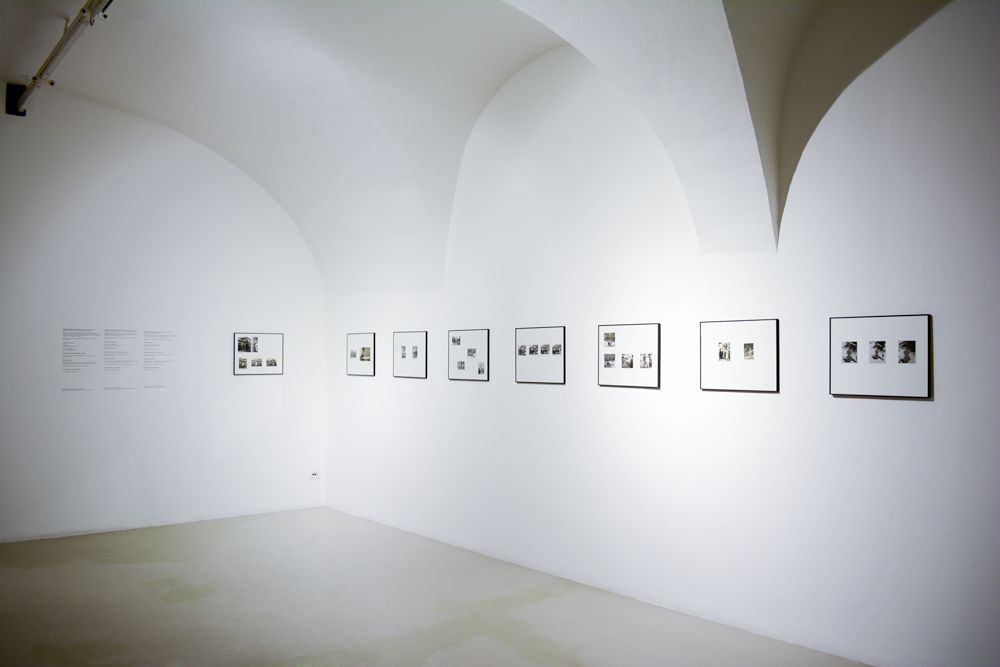Die unbequeme Wissenschaft(La scienza scomoda)Gareth Kennedy
Opening: 19.09.2014, 7 pm
‘Stuben-Forum’: 20.09.2014, 3 – 6 pm
Installation design by Harry Thaler
Production by Josef Rainer and Verena Rastner
Curated by Emanuele Guidi
The Uncomfortable Science is the culmination of research conducted by Irish artist Gareth Kennedy as part of the first year-long research project at ar/ge kunst. Invited for his work on expressions of ‘folk’ culture, Kennedy has undertaken an investigation of the troubled history of folklore and visual anthropology in the South Tyrol.
As a German-speaking region annexed by Italy after WWI, the South Tyrol has a fractious history with regard to the ideologically compromised scientific disciplines that were deployed in the region – Italian geographers and Austrian ethnographers both created myths of the ‘true origins’ of this people and place.
Developed during five residencies in 2013 and 2014, Kennedy’s research led him to the SS Ahnenerbe Kulturkommission, which was active in the South Tyrol from 1939 to 1942. In the words of Wolfram Sievers, head of the Ahnenerbe, its primary assignment was ‘the investigation and processing of the entire material and intellectual goods of… ethnic Germans.’ This folk expedition was undertaken during the systematic division of the population between fascist Italy and the Third Reich. Die Option, a 1939 agreement between the Axis powers, planned the relocation of the German speaking population. In a break with Nationalist Socialist ideology, the cultural and ethnic German population was given a choice between Blut oder Boden (blood or soil), i.e. a choice between relocating within the Third Reich and retaining their Germanic culture and identity, or becoming entirely Italianised.
Arguably the largest folklore/linguistic field investigation in history, the Kulturkommission exhaustively documented the material, linguistic, folk and music customs of this Alpine people. Their culture was to be preserved and made available to them after relocation to the newly occupied territories of Tatra Mountains, Burgundy or the Crimea – this was ‘salvage ethnography’ by political diktat.
Having visited research archives and museums in Bolzano, Innsbruck and Vienna, Kennedy has assembled a cast of five characters relating to this uncomfortable episode of anthropology in the South Tyrol. Five Maskenschnitzer (mask carvers) from across the region have each been commissioned to carve one character. These include Richard Wolfram, head of the Kulturkommission; the ethnomusicologist Alfred Quellmalz; photographer Arthur Scheler; and anthropologist Bronislaw Malinowski, who used to vacation in the South Tyrol and was sharply critical of Europeans conducting anthropological studies on other Europeans, something he saw as ideologically contaminated. Also included in this ensemble is Ettore Tolomei, the Italian fascist geographer and irredentist.
In the context of the history of South Tyrolean theatre, Kennedy is interested in what is performable and what still remains taboo within specific cultural contexts. Thus far none of his selected characters have been staged in the South Tyrol. At ar/ge kunst, a 16mm film of the Maskenschnitzer at work will be screened alongside the masks themselves. Additionally, a carefully curated series of photographic and film material from the Kulturkommission will be presented, much of it for the first time in the South Tyrol.
Exhibited alongside the film and archival material, the masks will become props in a public discussion to be held with invited guests.
In collaboration with designer Harry Thaler, the exhibition space will be converted into a ‘Stube’ (the centre of Tyrolean domestic life and a locus for folk theatre) to host this public moment.
This ‘Stuben-Forum’ will explore issues around the invention of tradition, instrumentalisation of folk cultures, identity, territory and performance.
Speakers include Thomas Nussbaumer (University of Innsbruck); Georg Grote (University College Dublin); Franz Haller, visual anthropologist; Ina Tartler and Elizabeth Thaler (Vereinigte Bühnen Bozen); and Hannes Obermair (Bozen Stadtarchiv). The Forum will be chaired by Hans Karl Peterlini, journalist and author.
Gareth Kennedy is an artist from Ireland. His practice includes public art commissions, exhibitions and collaborations. He co-represented Ireland at the 2009 Venice Biennale with Sarah Browne and their collaborative entitiy, Kennedy Browne.
Harry Thaler is a designer from Merano (I), based in London since 2008. Thaler graduated from Royal College of Art in Product Design and was praised with the Conran Award 2010 for Pressed Chair.
(1) An institution for archaeology and cultural history in the Third Reich.
(2) James R. Dow and Olaf Bockhorn, The Study of European Ethnology in Austria. Aldershot: Ashgate, 2004.
www.gkennedy.info
www.harrythaler.it
www.kennedybrowne.com
With the kind support of:
Provincia Autonoma dell’Alto Adige, Ripartizione Cultura
Regione Autonoma del Trentino Alto Adige,
Comune di Bolzano, Ripartizione Cultura
Culture Ireland / Cultúr Éireann
Fondazione Cassa di Risparmio, Bolzano
Kofler Falegnameria & Interior Design, S. Felice / Val di Non
Rothoblaas, Cortaccia
Deplau, S. Felice / Val di Non
Wolfstuben, Cermes
Österreichische Mediathek, Vienna
pur SÜDTIROL
Lichtstudio Eisenkeil
Dr. Schär, Postal
A special thanks go to:
Egetmann Verein Tramin
Südtiroler Landesmuseum für Volkskunde in Dietenheim
Ofas Architekten, Bozen
Referat Volksmusik, Fotoarchiv Quellmalz (Bereich Deutsche und Ladinische Musikschulen
